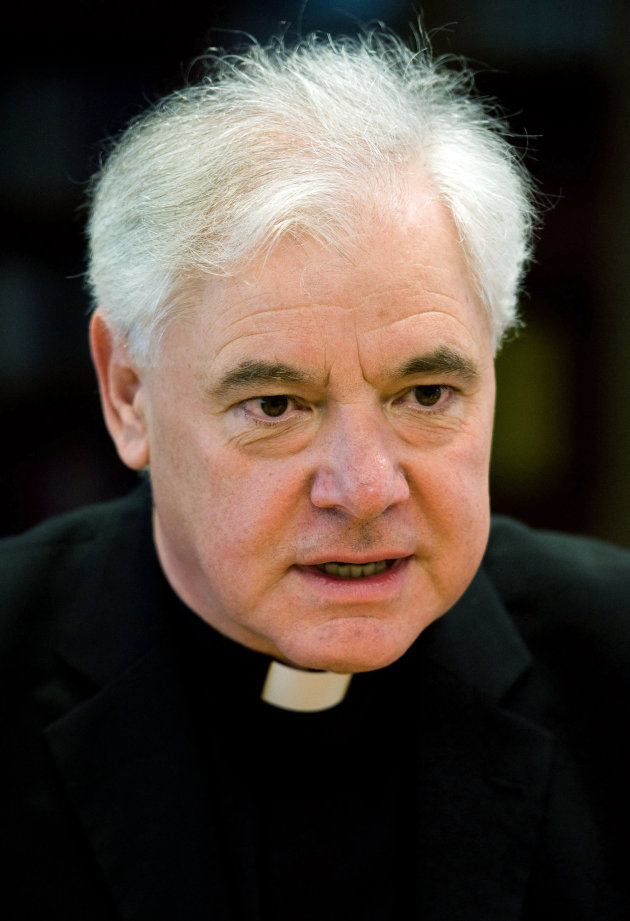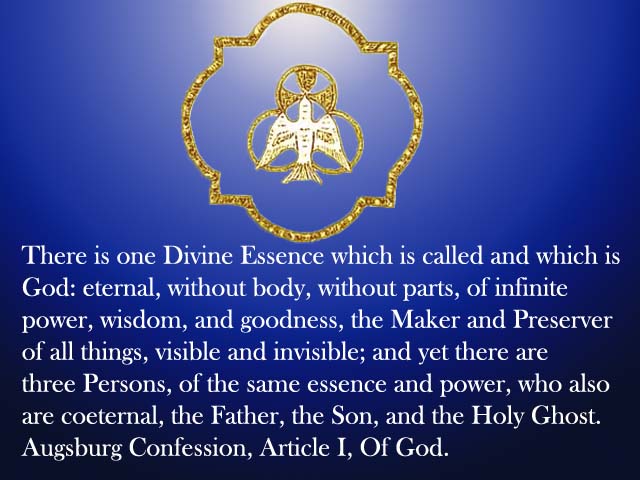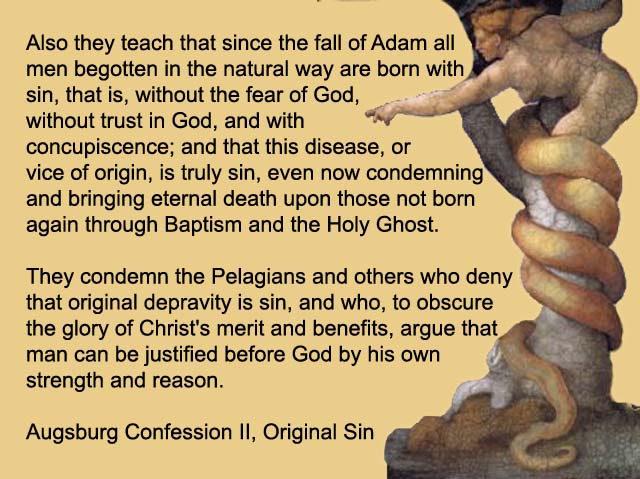 |
| Bishop Gerhard Ludwig Mueller to conservatives in the Church of Rome: be quiet and repent. |
Pope taps German theologian to head orthodoxy post - Yahoo! News:
Pope taps German theologian to head orthodoxy post
By NICOLE WINFIELD | Associated Press – 37 mins ago
VATICAN CITY (AP) — The pope named Bishop Gerhard Ludwig Mueller to head the Vatican's all-important orthodoxy office Monday, tapping a German theologian like himself to head the congregation he presided over for nearly a quarter-century enforcing Catholic doctrine.
The 64-year-old Regensburg bishop replaces American Cardinal William Levada, who turned 76 last month and is retiring after seven years at the helm of the Congregation for the Doctrine of the Faith, the former Holy Office.
While Mueller is considered a conservative theologian — he has penned some 400 academic articles and founded an institute to publish all the pope's writings — some of his less-than-orthodox positions have raised eyebrows in Rome and abroad among staunch conservatives.
Chief among them is his friendship with the Rev. Gustavo Gutierrez, the Peruvian priest considered the founder of liberation theology, the Marxist-influenced one advocating for the poor.
The former Cardinal Joseph Ratzinger, now Pope Benedict XVI, spent much of his tenure at the congregation battling liberation theology, arguing that it misinterpreted Jesus' preference for the poor into a call for rebellion.
Mueller was a student of Gutierrez, wrote a book with him on liberation theology in 2004, and in 2008 was given an honorary degree at the Pontifical University of Lima, where he gave a speech entitled "My experiences with Liberation Theology."
In the speech, though, he stressed that Gutierrez's liberation theology wasn't a political call to revolution, but rather was perfectly in line with the church's social teaching about the poor. It's a distinction he repeated in December in an article in the Vatican newspaper in which he noted that Benedict himself has said not all aspects of liberation theology were problematic.
Yet Mueller has also raised alarm bells among the church's more conservative, traditionalist wings for his outreach work with other Christians. He has served on several ecumenical committees, including being named the chief Catholic negotiator in theological talks with Lutherans.
In addition to handling clerical sex abuse cases, the Congregation for the Doctrine of the Faith is responsible for negotiating with a breakaway group of traditionalist Catholics, the Society of St. Pius X, which split from Rome over the liberalizing reforms of the 1962-65 Second Vatican Council.
Mueller has spoken out against the society, including a 2009 interview with the German news website Zeit Online in which he said the society's four bishops should resign, keep quiet and "lead an exemplary life as simple priests to repair a part of the damage the schism has caused."
Benedict has made many concessions to try to reconcile with the society, and just last month he offered its members a special legal status within the church, if they were to come into full communion with Rome. But the superior, Bishop Bernard Fellay, has said more talks are needed and that things were at a "dead end."
Naming Mueller as lead negotiator in reconciliation talks certainly can't have come as a welcome development by the society. Yet in a bid to nudge the process forward — and perhaps blunt any negative reaction to a Mueller appointment — Benedict last week tapped a trusted colleague to be the congregation's key No. 2 negotiator.
The appointment of the American Dominican theologian, Monsignor Augustine Di Noia, was accompanied by an unusual statement from the congregation stressing Di Noia's credentials in interpreting Vatican II not as a rupture from the past as liberals believe but as a continuation with the great traditions of Catholicism.
Mueller is a longtime friend of Benedict's and in 2008 founded a diocesan institute, the "Pope Benedict XVI Institute" to publish a 16-volume compilation of the "Collected Writings of Joseph Ratzinger."
Ratzinger attended Mueller's 2002 consecration when he was named bishop of Regensburg, and Mueller hosted the pope during his now-infamous 2006 visit to Regensburg, where Benedict delivered a speech which riled Muslims around the globe. In it, Benedict quoted a 14th-century Byzantine emperor connecting Islam with violence.
At the congregation, Mueller will find a host of unfinished business: In addition to talks with the breakaway traditionalists, he inherits the clerical sex abuse portfolio, which grew exponentially in 2010 with the explosion of cases in Europe, including his native Germany.
The main U.S. victims group, Survivors Network for those Abused by Priests, faulted Mueller for having reinstated a priest who had been convicted for child sex crimes. Mueller has apologized for his handling of the case of the Rev. Peter Kramer, who was convicted in 2000 yet was reinstated in parish work after undergoing therapy.
Mueller also must deal with the congregation's crackdown on the largest group of American nuns, the Leadership Conference for Women Religious, whom the congregation under Levada had accused of straying too far from church doctrine.
Levada, who was brought into the ex-Holy Office in 2005 after Benedict became pope, launched the investigation in 2009 and its findings have embittered many American Catholics against what they perceive as heavy-handed tactics by Rome against U.S. sisters who provide critical health care, education and other services for the poor.
In a statement Monday, the head of the German Bishops Conference, Archbishop Robert Zollitsch, said bishops in the pope's homeland are proud that Mueller would be performing "this important task."
"He is one of the most distinguished theologians of the present time," Zollitsch said, adding that he has led the conference's ecumenical commission for several years "with success and great sensitivity."
We Are Church, a movement that calls for reforms in the church, said Mueller had high-class academic qualifications but that a key question would be whether he has the "necessary intellectual and spiritual caliber" for new thinking — and whether his friendship with Gutierrez might lead to a reevaluation of liberation theology.
Mueller's best-known work is a 900-page tome "Catholic Dogmatics: For the Study and Practice of Theology."
'via Blog this'
---
bruce-church (http://bruce-church.myopenid.com/) has left a new comment on your post "Pope taps German theologian to head orthodoxy post...":
People wonder why Italy can't stop out the mafia, and then it's revealed that the Vatican City banks are laundering money for the mafia, at least from the 1980s and until today, since the bank still can't be transparent to outside regulators for all the obvious reasons. The Vatican money men likely were corrupt going back to day one of the papacy in the 600s when authority was wrested from Byzantium:
Transparency vs. Money Laundering
Catholic Church Fears Growing Vatican Bank Scandal:
http://www.spiegel.de/international/europe/a-growing-vatican-bank-scandal-threatens-catholic-church-image-a-842140.html















